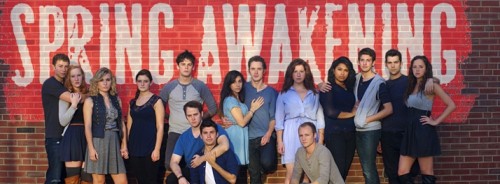This USA Today piece, which focused on binge drinking, had some advice:
Pediatrician Patricia Kokotailo, director of adolescent medicine at the University of Wisconsin School of Medicine and Public Health and the lead author of the American Academy of Pediatrics policy statement on alcohol use by youth and adolescents, says parents should: […]
• Set a firm policy: No alcohol, drugs or tobacco until age 21. Use the new research on the teenage brain to explain that this is about keeping those maturing brains safe and enabling them to keep on maturing. “We now know that the brains of adolescents continue to mature at least into their mid-20s, especially in the frontal cortex and pre-frontal cortex areas which are involved with emotional regulation, planning, organization and inhibition of inappropriate actions,” Kokotailo says. “The immaturity of the adolescent brain confers greater vulnerability to toxic and addictive actions of alcohol.”
Clearly Patricia has never been a teenager or spent much time around them. 21? Sure, that’s the law for alcohol, and it’s a nice idea if young people wait until then, but few will (and they’ll see right through a lecture on adolescent brain development, knowing that it has nothing to do with abstinence — that argument is better served in a discussion about moderation).
Setting a firm policy of 21 merely means that you’ll be the last to know what your children are doing.
Because, quite frankly, the opportunities will be there and young people are going to try things. It’s their job, built in to their DNA and part of their development into adults.
I think back to my own teenage years, and I led a pretty sheltered life in some ways. My parents were strictly against even alcohol use for adults, and certainly they were strongly against tobacco or other drugs, and there was never any alcohol or tobacco in our house. And I had absolutely no interest in them.
Yet, I had my first beer while in high school, provided by other members of a church youth group I was working with on a charitable project. My first cigarette came from one of my first jobs; my first hard alcohol while visiting college as a prospective student; and marijuana and other drugs from friends in college.
Fortunately, my use was careful and moderate, and I never had any problem with any of it. But that came entirely from me, not from the strictures laid upon me by my parents, nor from any real knowledge. And yes, I made damned sure my parents didn’t know what I was doing.
For a mature and responsible approach to parents talking to their youth about drugs and alcohol, read this letter from Marsha Rosenbaum to her son and his response 8 years later. It’s a powerful lesson.
Feeding young people simplistic messages like “Just say no,” or “nothing until you’re 21,” is much like abstinence-based sex education — a dangerous fantasy. You can wish that your child will remain innocent until they are an adult, but turning that into how you parent can result in tragedy when the young person inevitably fails to wait, and now isn’t well-enough informed.
…
This means even more to me know because of my current project: I’m the music director for our production of the Broadway musical “Spring Awakening,” which opens next week.
The musical is based on an 1851 play by Frank Wedekind (which was banned for 100 years) about the sexual awakening of teenagers, and it deals with a host of very frank issues. The adults in the play (all the male adults played by one actor and all the female adults by one actress) wish to maintain strict control over their charges, while the young people are desparate to know more.
In an early scene, young Wendla, who no longer believes in the stork, asks her mother how babies come to be. The parent, flabbergasted by such frankness, finally gives her this:
For a woman to bear a child, she must… in her own personal way, she must… love her husband. Love him, as she can love only him. Only him… she must love — with her whole… heart.
There. Now you know everything.
Ultimately, that lack of parenting leads to tragedy.
Duncan Sheik and Steven Sater have taken this powerful (and both humorous and tragic) play and added an amazing folk-rock score that represents the inner monologues of the young people.
I’m conducting and playing both piano and harmonium on stage, with a band including violin, viola, cello, bass (acoustic and electric) two guitars (acoustic and electric) and percussion.
We have an incredible cast (see below), director and design team. If you’re in the vicinity of Central Illinois, I suggest you check it out. It runs September 27 through October 5.

Note: the title of this post is the title of one of the songs in “Spring Awakening,” dealing with young people trying to understand how they fit in the world around them while dealing with their biological urges.
![]() $3.4M settlement in deadly 2011 SWAT raid near Tucson
$3.4M settlement in deadly 2011 SWAT raid near Tucson

